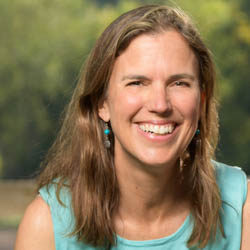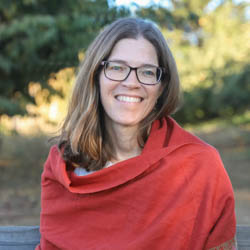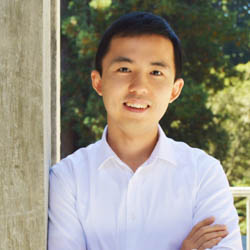Campus News
UC Santa Cruz faculty recognized for excellence in ecology
The Ecological Society of America announced its 2021 Fellow and Early Career Fellow awards, and UC Santa Cruz’s faculty were the most decorated of any university on this year’s list.




The Ecological Society of America (ESA) recently announced its 2021 ESA Fellow awards, which recognize scientists who have made outstanding contributions to the field, and UC Santa Cruz’s faculty were the most decorated of any university on this year’s list.
The 2021 class of inductees included researchers from 29 institutions across the U.S., Canada, and Australia. Four UC Santa Cruz faculty members were honored among the 25 ESA Fellow awardees and 10 Early Career Fellow winners.
Professor Ingrid Parker, of UCSC’s Ecology and Evolutionary Biology Department, was recognized as an ESA Fellow this year for her research on the ongoing conservation impacts of biological invasions. She works in close partnership with resource managers to conserve biological diversity through invasive species removal and ecosystem restoration.
Parker discovered her passion for this work while she was an undergraduate at UC Santa Cruz in the 1980s. She credits that experience with helping to set the path for much of what she has accomplished today, including her ESA Fellow award.
“I got my start here at UC Santa Cruz, and I think this is such an amazing place for biodiversity studies and ecology,” she said. “I always have felt incredibly lucky to get to come back here and be a professor, and I hope this recognition will reflect on the quality of our institution.”
Environmental Studies Professor Karen Holl was also excited to be recognized as a 2021 ESA Fellow alongside UCSC colleagues.
“I think it is a strong statement about the caliber of ecological research that we’re doing here,” she said.
Holl’s award was based in part on her leadership in long-term monitoring efforts, including around forest restoration and improving the effectiveness of tree-growing campaigns. Her nomination recognizes her work in “bringing science into decision making,” through effective communication with policymakers and the media.
“I feel strongly that if I’m going to spend all of this time collecting data, it’s important to put that to public service to help people and the ecosystems on which they depend,” she said. “Science is not just an academic exercise.”
Environmental Studies Professor Stacy Philpott—who’s also the Ruth & Alfred Heller Endowed Chair in Agroecology and the director of the Center for Agroecology and Sustainable Food Systems—was proud to earn an ESA Fellow award this year as a representative of agroecology’s important role within the field. Much of Philpott’s research focuses on the role of insects in agricultural ecosystems, but her nomination also recognized her special dedication to teaching and mentorship, particularly for women and students of color.
“There’s really nothing more exciting than seeing an undergraduate student publish their first paper, get into grad school, or get a job doing ecological research that they’re really excited about,” she said. “Especially when it comes to promoting young women in science and students of color, who have been so dramatically underrepresented in ecology.”
Philpott hopes ecologists will continue working to bring more diversity and inclusion to the field, including through developing more equitable collaborations with people in the global south and with environmental justice and food sovereignty movements.
Assistant Professor of Environmental Studies Kai Zhu, who was honored as an Early Career Fellow this year, said he felt particularly proud to accept that recognition as an Asian ecologist. During a time when anti-Asian violence has been on display across the country, he wants all people of color to feel safe and valued within the ecology community.
“I hope that my election to the program will help to promote Asian ecologists and members of other minority communities to achieve the same level of success as anyone else in ecology,” he said.
Zhu’s award was based on his blending of classical ecological theories with modern computational tools to study global issues like climate change. He hopes the field will continue to find new ways to embrace big data and explore interdisciplinary questions. And now, he and his fellow ESA awardees have a new leadership platform to help shape ecology’s future.
“It feels exciting to be recognized by the Ecological Society of America,” Zhu said. “It’s a tremendous honor, and it’s very inspiring for me as a young scientist.”